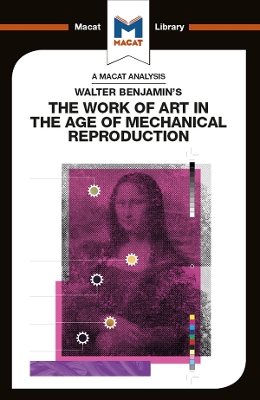The Macat Library
9 total works
Frantz Fanon’s explosive Black Skin, White Masks is a merciless exposé of the psychological damage done by colonial rule across the world. Using Fanon’s incisive analytical abilities to expose the consequences of colonialism on the psyches of colonized peoples, it is both a crucial text in post-colonial theory, and a lesson in the power of analytical skills to reveal the realities that hide beneath the surface of things.
Fanon was himself part of a colonized nation – Martinique – and grew up with the values and beliefs of French culture imposed upon him, while remaining relegated to an inferior status in society. Qualifying as a psychiatrist in France before working in Algeria (a French colony subject to brutal repression), his own experiences granted him a sharp insight into the psychological problems associated with colonial rule.
Like any good analytical thinker, Fanon’s particular skill was in breaking things down and joining dots. His analysis of colonial rule exposed its implicit assumptions – and how they were replicated in colonised populations – allowing Fanon to unpick the hidden reasons behind his own conflicted psychological make up, and those of his patients. Unflinchingly clear-sighted in doing so, Black Skin White Masks remains a shocking read today.
An Analysis of Michel Foucault's Discipline and Punish
by Meghan Kallman and Rachele Dini
Michel Foucault is famous as one of the 20th-century's most innovative thinkers - and his work on Discipline and Punish was so original and offered models so useful to other scholars that the book now ranks among the most influential academic works ever published.
Foucault's aim is to trace the way in which incarceration was transformed between the seventeenth and twentieth centuries. What started as a spectacle, in which ritual punishments were focused on the prisoner's body, eventually became a matter of the private disciplining of a delinquent soul.
Foucault's work is renowned for its original insights, and Discipline and Punish contains several of his most compelling observations. Much of the focus of the book is on making new connections between knowledge and power, leading Foucault to sketch out a new interpretation of the relationship between voir, savoir and pouvoir - or, 'to see is to know is to have power.' Foucault also dwells in fascinating detail on the true implications of a uniquely creative solution to the problems generated by incarcerating large numbers of criminals in a confined space - Jeremy Bentham's 'panopticon,' a prison constructed around a central tower from which hidden guards might - or might not - be monitoring any given prisoner at any given time. As Foucualt points out, the panopticon creates a prison in which inmates will discipline themselves, for fear of punishment, even when there are no guards present. He goes on to apply this insight to the manner in which all of us behave in the outside world - a world in which CCTV and speed cameras are explicitly designed to modify our behavior.
Foucault's highly original vision of prisons also ties them to broader structures of power, allowing him to argue that all previous conceptions of prison are misleading, even wrong. For Foucault, the ultimate purpose of incarceration is neither to punish inmates, nor to reduce crime. It is to produce delinquency as a way of enabling the state to control and of structure crime.
An Analysis of Walter Benjamin's The Work of Art in the Age of Mechanical Reproduction
by Rachele Dini
The Work of Art in the Age of Mechanical Reproduction combats traditional art criticism's treatment of artworks as fixed, unchanging mystical objects. For Walter Benjamin, the consequences of addressing a work of art in this manner have a wider resonance: closed off from any active visual or tactile engagement, the work of art becomes an object of passive contemplation and a potential tool of oppression.
Benjamin argues that technology has fundamentally altered the way art is experienced. Potentially open to interpretation and accessible to many, art in the age of mechanical reproduction has the potential to be mobilized for radical purposes. While ostensibly addressing the artistic consequences of technical reproducibility on art, Benjamin also addresses the wider political consequences of this shift.
An Analysis of Michel Foucault's The History of Sexuality
by Rachele Dini and Chiara Briganti
Michel Foucault is famous as one of the 20th-century's most innovative and wide-ranging thinkers. The qualities that made him one of the most-read and influential theorists of the modern age find full expression in History of Sexuality, the last project Foucault was able to complete before his death in 1984.
Central to Foucault's appeal is the creativity of his thought. Creative thinking takes many forms - from redefining an issue in a novel way to making unexpected and illuminating connections. Foucault's particular talent could perhaps best be described as turning questions inside out. In the case of sexuality, for instance, his interpretation of the historical evidence led him to argue that the sexual categories that we are used to (homosexual, lesbian, straight, and so on) are not "natural," but constructs that are products of the ways in which power and knowledge interact in society.
Such categories, Foucault continues, actually serve to produce the desires they seek to name. And their creation, in turn, is closely linked to the power that society exerts on those who belong to different sexual groups.
Foucault's ideas - familiar now - were so novel in their time that they proved highly challenging. But to see the world through Foucault's thought is to see it in a profoundly different and illuminating way - an example of creative thinking at its best.
Simone de Beauvoir's 1949 book The Second Sex is a masterpiece of feminist criticism and philosophy. An incendiary take on the place of women in post-war French society, it helped define major trends in feminist thought for the rest of the 20th century, and its influence is still felt today.
The book's success owes much to Beauvoir's brilliant writing style and passion, but both are rooted in the clarity of her critical thinking skills. She builds a strong argument against the silent assumptions that continually demoted (and still demote) women to "second place" in a society dominated by men. Beauvoir also demonstrates the central skills of reasoning at their best: presenting a persuasive case, organising her thoughts, and supporting her conclusions.
Above all, though, The Second Sex is a masterclass in analysis. Treating the structures of contemporary society and culture as a series of arguments that tend continuously to demote women, Beauvoir is able to isolate and describe the implicit assumptions that underpin male domination. Her demolition of these assumptions provides the crucial ammunition for her argument that women are in no way the "second" sex, but are in every way the equal of men.





